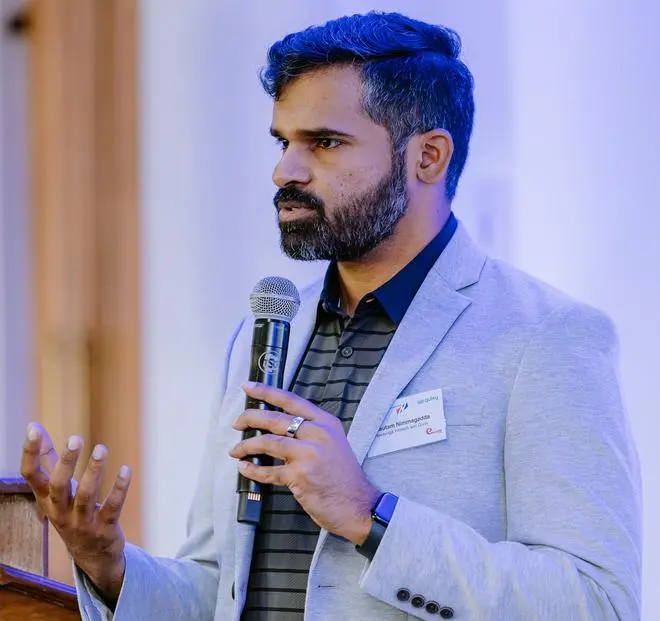Quixy, a no-code and low-code application development platform, has set its eyes on expansion abroad as it establishes offices in South Africa and the United Arab Emirates. “We are planning to expand our operations to the US,” Gautam Nimmagadda, Founder and Chief Executive Officer of Quixy, told businessline.
The four-year-old company, which has 290 employees, including 180 at its development centre in Hyderabad, focuses on the enterprise segment with its no-code low-code solutions.
Though in vogue for over a few decades, no-code low-code platforms are gaining currency in the recent times with the demand for digitisation of processes is going up significantly. These platforms allow people with low or no technical skills to develop solutions, drastically reducing the time and helping businesses save expenditure on IT development.

Gautam Nimmagadda, Founder-CEO of Quixy | Photo Credit: deeann kaaijk
“The no-code low-code development has taken off, not only in India but also worldwide. The awareness levels on its benefits are much higher than what it was three years ago,” he said.
Quoting research reports, he said that the no-code low-code market size would go up to $50 billion by 2027-28 from the present level of $7-8 billion.
- Also Read: Aluminium: Can rise within the range
Stating that no-code low-code development would drastically reduce the time and cost of developing solutions, he said the reduction in time could be so high that the time to develop a solution can be reduced to six to eight man months if one uses no-code low-code platforms as against 300 man months.
He, however, felt that it would depend on the complexity of the solution. “The more complex the project, the bigger the savings,” he said.
The company helps businesses with no coding skills to automate their workflows and processes and create enterprise-grade applications with agility.
“With its easy-to-use drag-and-drop interface and a host of pre-built templates and connectors, no-code low-code would enable organisations to build scalable, secure, and customisable applications which can be seamlessly integrated with existing systems,” he said.
Appetite growing
He said more and more companies were recognising the importance of the quick development of solutions.
“Even bigger IT service companies have started no-code low-code practices. By the end of the decade, at least 70-80 per cent of applications and solutions would have been made on these practices,” he said.









Comments
Comments have to be in English, and in full sentences. They cannot be abusive or personal. Please abide by our community guidelines for posting your comments.
We have migrated to a new commenting platform. If you are already a registered user of TheHindu Businessline and logged in, you may continue to engage with our articles. If you do not have an account please register and login to post comments. Users can access their older comments by logging into their accounts on Vuukle.